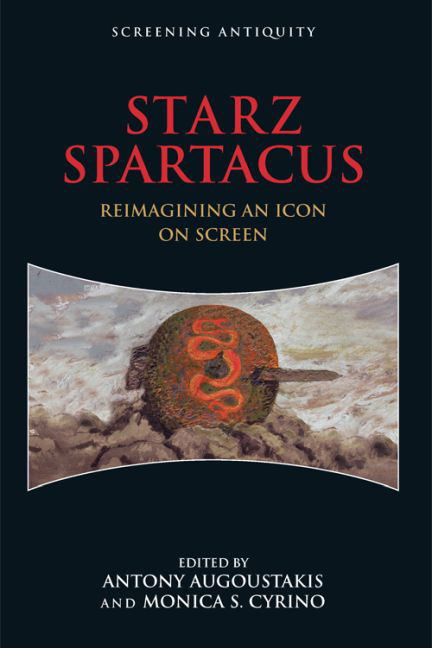Book contents
- Frontmatter
- Contents
- Series Editors' Preface
- Editors' Acknowledgments
- Contributors
- List of Illustrations
- Episode Listing
- Introduction: Reimagining a New Spartacus
- PART I HEROES AND HEROISM
- PART II SOCIAL SPACES
- PART III GENDER AND SEXUALITY
- 8 The Rape of Lucretia
- 9 The Others
- 10 Fan Reactions to Nagron as One True Pairing
- PART IV SPECTACLE AND VIOLENCE
- Filmography
- Bibliography
- Index
8 - The Rape of Lucretia
from PART III - GENDER AND SEXUALITY
Published online by Cambridge University Press: 27 April 2017
- Frontmatter
- Contents
- Series Editors' Preface
- Editors' Acknowledgments
- Contributors
- List of Illustrations
- Episode Listing
- Introduction: Reimagining a New Spartacus
- PART I HEROES AND HEROISM
- PART II SOCIAL SPACES
- PART III GENDER AND SEXUALITY
- 8 The Rape of Lucretia
- 9 The Others
- 10 Fan Reactions to Nagron as One True Pairing
- PART IV SPECTACLE AND VIOLENCE
- Filmography
- Bibliography
- Index
Summary
When a television series set in ancient Rome chooses to name its leading female character “Lucretia,” it is impossible to ignore the dual echoes of such a name. Both the legendary Lucretia, the paradigmatic virtuous matron whose rape and suicide sparked the birth of the Roman Republic, and Lucrezia Borgia, the allegedly incestuous Renaissance poisoner, have shaded the name with nearly as much baggage as “Messalina” or “Cleopatra.” From the very beginning of STARZ Spartacus, the question sits at the back of the well-educated viewer's mind – will this Lucretia be raped? What is her connection to sexuality and to revolution? STARZ Spartacus does not provide us with a quick or easy answer to this question, or indeed to the issue of rape in general. The theme of Lucretia's sexual attitudes in the series and, in particular, her relationship to the act of rape reflects on the use of rape in modern historical fiction to assert power and to demean both women and men. The cinematic motif of rape is fraught with issues of power and its abuse, the major themes underlying the tragic drive of the entire Spartacus series. In particular, both men and women exercise their dominance over others through sexual abuse. Television critic Maureen Ryan has commented that Spartacus is one of the most feminist shows on television. The depiction of rape is one of the most significant and feminist aspects of Spartacus in this regard.
RAPE ON THE HISTORICAL/FANTASY SCREEN
Before turning to a detailed discussion of Spartacus itself, its representation should be placed within the larger context of the current popularity of rape scenes in historically based television series and films. Once a censored or forbidden topic, rape has become a nearly commonplace feature of premium cable dramas, especially historical and fantasy dramas. In general, television and film rape scenes are highly eroticized and seem designed for both the shock and pleasure of male viewers. As New York Times film critic A. O. Scott commented in his review of The Girl with the Dragon Tattoo (2011), “It is in the nature of the moving image to give pleasure, and in the nature of film audiences – consciously or not, admittedly or not – to find pleasure in what they see.
- Type
- Chapter
- Information
- STARZ SpartacusReimagining an Icon on Screen, pp. 133 - 147Publisher: Edinburgh University PressPrint publication year: 2017



